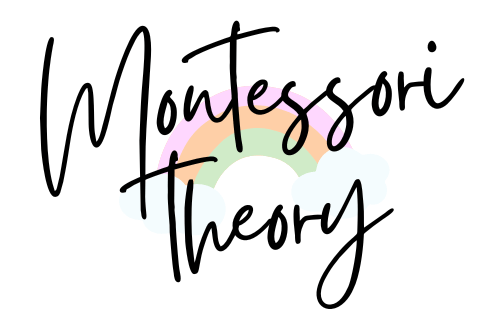As a parent deeply invested in the Montessori philosophy, I have found that integrating positive discipline into our family’s routine has been a game-changer. It’s a journey that has transformed not just the way I approach parenting, but also how I view the role of a parent in a child’s life. Through this article, I want to share the insights and practices that have helped shape a harmonious and respectful family environment.
Key Takeaways
- Positive discipline is a proactive approach to parenting that focuses on guidance and teaching rather than punishment.
- Positive discipline involves active listening, validation, and collaborative problem-solving.
- Positive discipline is not about being perfect. It is about learning from our mistakes and continuing to grow as parents.
- By incorporating positive discipline into your parenting practices, you can create a more harmonious and respectful family environment.
Transforming Parenting with Montessori-Inspired Positive Discipline
Recent research has highlighted some critical aspects of parenting styles and their impact on child development, which are particularly relevant for parents interested in Montessori education. A study in the “Journal of Child and Family Studies” [1] revealed that punitive parenting styles are linked to increased internalizing and externalizing problems in children. This finding is particularly significant in the context of Montessori education, which emphasizes respect, independence, and positive guidance rather than punitive measures.
In contrast, another study from the same journal [2] showed that positive parenting approaches, akin to Montessori principles, can mitigate these negative effects. The study found that parental warmth and understanding can significantly reduce the adverse effects of punitive discipline. Additionally, the “Child Psychiatry & Human Development” journal [3] reported that parents who participated in Positive Discipline parenting workshops saw a decrease in authoritarian and permissive parenting styles and an increase in child academic competence. These results align with Montessori’s emphasis on fostering a supportive and nurturing environment, demonstrating the profound impact of positive parenting approaches on children’s development.
Blending Montessori Principles with Positive Discipline
The Montessori philosophy, which focuses on respecting a child’s individual pace and encouraging child-led learning, blends seamlessly with the principles of positive discipline. This synergy creates a parenting approach that emphasizes guiding children with understanding and respect. Here’s how these principles intersect:
- Respect for the Child: Both Montessori and positive discipline advocate treating children as individuals deserving of respect.
- Encouraging Independence: They both support allowing children to learn from their experiences, make choices, and solve problems independently.
- Focus on Learning: These approaches shift the focus from punishment to teaching, helping children understand the impact of their actions in a compassionate manner.
Rethinking Discipline: From Punishment to Learning
In the world of positive discipline, ‘discipline’ is viewed not as a means of punishment but as a path to teaching and learning. This perspective shift has been a cornerstone in how I build a relationship with my children, one that’s grounded in respect and empathy. Understanding this change in perspective involves:
- From Control to Guidance: Shifting from a mindset of controlling behavior to one of guiding and teaching.
- Understanding Before Punishing: Prioritizing understanding the root cause of behaviors over immediate punishment.
- Fostering Cooperation Over Compliance: Encouraging children to cooperate based on understanding and agreement, rather than fear of consequences.
Proactive Strategies for Harmonious Parenting
Implementing proactive strategies is key to preventing many behavioral issues. These strategies are about creating a positive, supportive environment where children can thrive. Key elements include:
- Modeling Desired Behavior: Demonstrating the behaviors we wish to see in our children is crucial, as they often learn by example.
- Establishing Consistent Routines: Predictability and consistency in daily routines help children feel secure and understand what’s expected of them.
- Creating a Prepared Environment: Organizing the home to support the child’s independence and learning opportunities.
The Core of Positive Discipline: Connection Before Correction
The core of positive discipline is about connecting with your child before attempting to correct their behavior. This approach transforms how we handle challenging situations by emphasizing emotional support and understanding. Key aspects include:
- Listening Actively: Taking the time to listen to our children’s feelings and perspectives shows them that their emotions are valid and important.
- Validating Emotions: Acknowledging and validating a child’s emotions helps them feel understood and supported, which is crucial in building trust.
- Collaborative Problem-Solving: Engaging children in finding solutions to problems encourages them to think critically and feel more invested in the outcomes.
Practical Tips for Everyday Parenting Challenges
Daily integration of positive discipline involves practical, child-respecting strategies. These approaches foster a sense of involvement and respect in children, leading to smoother and more cooperative daily routines:
- Establishing Clear Boundaries: Setting clear, consistent boundaries in a respectful manner helps children understand expectations and the reasons behind them.
- Encouraging Participation: Inviting children to participate in decision-making processes gives them a sense of agency and responsibility.
- Creating a Positive Atmosphere: Using positive language and maintaining a calm, supportive environment encourages children to express themselves freely and confidently.
Embracing Imperfection and Continuous Learning
Learning from and acknowledging parenting mistakes is an integral part of this journey. Embracing imperfection is not just about accepting that we are not perfect, but also about viewing each misstep as an opportunity for growth and connection. This process involves:
- Reflecting on Mistakes: Taking time to reflect on our actions and understand how they affect our children helps us grow as parents.
- Apologizing When Necessary: Demonstrating to our children that it’s okay to make mistakes and apologize sincerely fosters a culture of honesty and respect.
- Modeling Resilience: Showing our children how we recover and learn from our mistakes teaches them resilience and the importance of perseverance.
Be the Architect of Your Family’s Transformation
In conclusion, merging Montessori principles with positive discipline has profoundly influenced our family dynamics. It’s a journey that values respect, empathy, and mutual understanding. By adopting these methods, we create a nurturing environment where our children grow into confident, capable, and compassionate individuals.
References
- “Punitive Parenting Style and Psychological Problems in Childhood: The Moderating Role of Warmth and Temperament” – Journal of Child and Family Studies. https://link.springer.com/article/10.1007/s10826-018-1258-2
- “Effectiveness of Group Positive Parenting Program (Triple P) in Changing Child Behavior, Parenting Style, and Parental Adjustment: An Intervention Study in Japan” – Journal of Child and Family Studies. https://link.springer.com/article/10.1007/s10826-011-9448-1
- “Effectiveness of Positive Discipline Parenting Program on Parenting Style, and Child Adaptive Behavior” – Child Psychiatry & Human Development. https://link.springer.com/article/10.1007/s10578-021-01201-x



